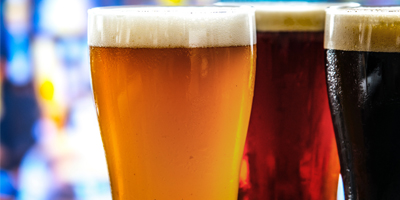No safe level of alcohol consumption, major study concludes
Published 18 Sep 2018

Giving up drinking completely is the only way to avoid the health risks associated with alcohol, according to a major new study.

Alcohol-related problems kill around 7 per cent of men and 2 per cent of women every year, and drinking is the leading cause of death and disability for people aged 15-49.
Though previous research has shown moderate levels of drinking may protect against heart disease, the new study concluded any supposed boosts to health are massively offset by the costs.
The researchers covered 195 countries between 1990 and 2016, and amassed data from hundreds of other studies.
“With the largest collected evidence base to date, our study makes the relationship between health and alcohol clear – drinking causes substantial health loss, in myriad ways, all over the world,” said Dr Max Griswold from the Institute for Health Metrics and Evaluation, one of the study’s lead authors.
They estimated that one drink a day increases the risk of developing an alcohol-related diseases including cancer, diabetes and tuberculosis by 0.5 per cent. This shot up to 7 per cent for those having two drinks a day, and 37 per cent for five drinks.
The findings emerge after another report found the drinks sector in the UK relies on people drinking above government limits for nearly 40 per cent of its revenues.
Official guidelines currently state that to keep alcohol health risks low, it is safest to avoid consuming more than 14 units a week – about seven pints of lager – on a regular basis.
However, the UK’s chief medical officers have previously stated that despite this allowance, there is “no safe level of alcohol consumption” – a point that has been reinforced by this study.
“There is a compelling and urgent need to overhaul policies to encourage either lowering people’s levels of alcohol consumption or abstaining entirely,” said Dr Emmanuela Gakidou, who also worked on the new research.
“The myth that one or two drinks a day are good for you is just that – a myth. This study shatters that myth.”
The findings were broadly welcomed by scientists and NGOs as a decisive statement on the impact drinking has on society.
Dr Tony Rao, a psychiatrist at King’s College London who was not involved in the study, commended the effort to unravel the complicated relationship between alcohol and health.
“We can now be more confident that there is no safe limit for alcohol when considering overall health risks,” he said.
Are you shocked by these findings? Do you find yourself ever going over the 14 units a week limit?
Independent.co.uk
22 comments

You will also like

The Hypotoxic (Seignalet) diet: Is it effective for certain chronic illnesses?
23 Jul 2021 • 6 comments

 Facebook
Facebook Twitter
Twitter


